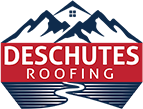As a commercial property owner or manager, you might not think much about your roofing system besides the routine maintenance check by a qualified contractor. As long as it keeps your property safe and secure against the weather, you can focus more on managing other aspects of your business. But even if you think you know your roof best, you’ll still sometimes hear about several myths and misconceptions surrounding commercial roof replacement.

Keep in mind that all sorts of misconceptions surround nearly every industry, which can be detrimental to those who aren’t aware of the real truth behind them. The same goes for the commercial roofing industry, as some commercial property managers and owners may blindly believe in these half-truths despite working with seasoned professionals. This can influence how they decide to manage their roof and end up with costly repairs.
Debunking the Roof Myths
While proper roof repair and maintenance is still important to prevent premature deterioration and failure, it’s more than just scheduling routine checks. If you want to avoid costly roofing mistakes when managing your roof, you must be properly informed about how your commercial roofing system works. That means learning the truth behind some of the most common commercial roofing misconceptions, including:
- “Wrinkled Membrane Roofs Can Be Ignored” – This happens because there’s moisture trapped underneath the roofing surface. Having a wrinkled membrane roof isn’t always a serious issue, but it doesn’t mean you can ignore it. Wrinkles can lead to blisters, which can be even more expensive to repair if left unattended.
If a roofer did subpar workmanship of installing your roof, it can also lead to wrinkled membranes. Some of the most common mistakes include making the adhesive too hot when the membrane was placed, which causes the material to wrinkle and distort. It can also be caused by the bitumen being too cold when the membrane was applied on the roofing surface. The adhesives beneath the material should prevent wrinkling when properly applied.
- “Newly-Installed Roofs Don’t Need Maintenance” – Even if your commercial roof is about a year old, you shouldn’t skip a professional maintenance check. As soon as your roof’s installed, it’s constantly exposed to different elements such as the weather, foreign debris, and even foot traffic. If you want your commercial roof to stay effective throughout its lifespan, it needs to be managed and maintained by a roof repair contractor at least a year after installation.
Regular inspection and maintenance should also be conducted at least annually. A DIY maintenance check (even with the help of your staff) won’t always be enough since there’s a bigger chance that you’ll miss potential details and issues that can cause more damage to your roof. This also doesn’t guarantee its performance and will void any warranty you have on your roofing system. If you think that this can save you more money, you’ll only end up with costly repairs since they weren’t properly addressed while they were still minor.
- “You’ll Have to Put Your Business Operations on Hold” – This isn’t true, because, in a typical commercial roof maintenance check, it won’t impede your daily business operations. However, if there’s significant damage on your roof that was caused by extreme weather conditions or some other accident, then it may be necessary to put your operations on hold.
However, if there’s only minor damage and your commercial roof is still mostly intact, then repairs can be made without disrupting your daily business operations. Even if it’s just routine maintenance, most professional roofers are flexible enough to ensure they won’t disturb the employees or retailers on your property. Just make sure to put a reminder to your employees/tenants that roof maintenance is ongoing so that they can continue work safely!
- “Roofers Will Only Recommend Pricey Materials” – While most contractors may sometimes recommend expensive materials for your commercial roofing system, that doesn’t automatically mean you’re being taken advantage of. When you work with an experienced professional roofing contractor, they will never use or recommend subpar quality materials, as they’re unreliable and can cause major accidents to your commercial property. If you insist on using such materials just to save money, you’ll eventually have to pay costly repairs later on.
As trusted contractors, we also understand that the most expensive options aren’t always the best solutions for your commercial property. We make sure to listen to your needs and preferences first and provide solutions that you can count on. With our knowledge and experience, we’ll help you make an informed decision that benefits your roof!
- “Commercial Roofs Are Built the Same” – This is far from the truth, as each commercial roofing system is built according to the building’s needs and specifications. For instance, the roof on top of a hotel or office building is built differently from that of a warehouse or manufacturing facility. To put it simply, each roofing system can be made from different materials that range from traditional built-up roofs and single-layer membranous roofs to several types of metal roofing materials.
Common Commercial Roofing Materials
If you’re planning to replace or upgrade your current roofing system, it helps to know which material meets your facility’s needs and preferences. Some of the most popular commercial roofing materials are listed below:
- Asphalt-Based Roofing – This is a popular material that’s widely known for its longevity and durability. It can last around 50 years if properly maintained by an experienced commercial roofing contractor.
- Modified Bitumen (Mod Bit) – Made out of factory-fabricated layers of asphalt, mod-bit systems are also mixed with a rubber or plastic ingredient that makes them “modified.” It also has a few other reinforcement materials that help increase its durability, stability, and flexibility.
- Low-Slope Metal Roofing – Commercial-grade metal roofing systems are worth the cost as they offer excellent, long-lasting protection against the weather. They’re usually made from corrugated galvanized steel coated with zinc but other options are available such as copper, aluminum, stainless steel, and tin.
- Single-Ply Roofing – Installing this type of roofing material is much easier compared to asphalt-based roofing systems. It also has different options and is recommended for roofs that don’t usually have human traffic.
When it comes to reliable commercial roof replacement services, Deschutes Roofing is the only business to trust!
Call us at (541) 241-5720 if you’re in Bend, (503) 967-9590 if you’re from Portland, (541) 246-6860 if you’re in Eugene, (503) 468-7663 if you’re in Lake Oswego, or (503) 928-8750 if you’re from Beaverton. You can also fill out our convenient online form.










